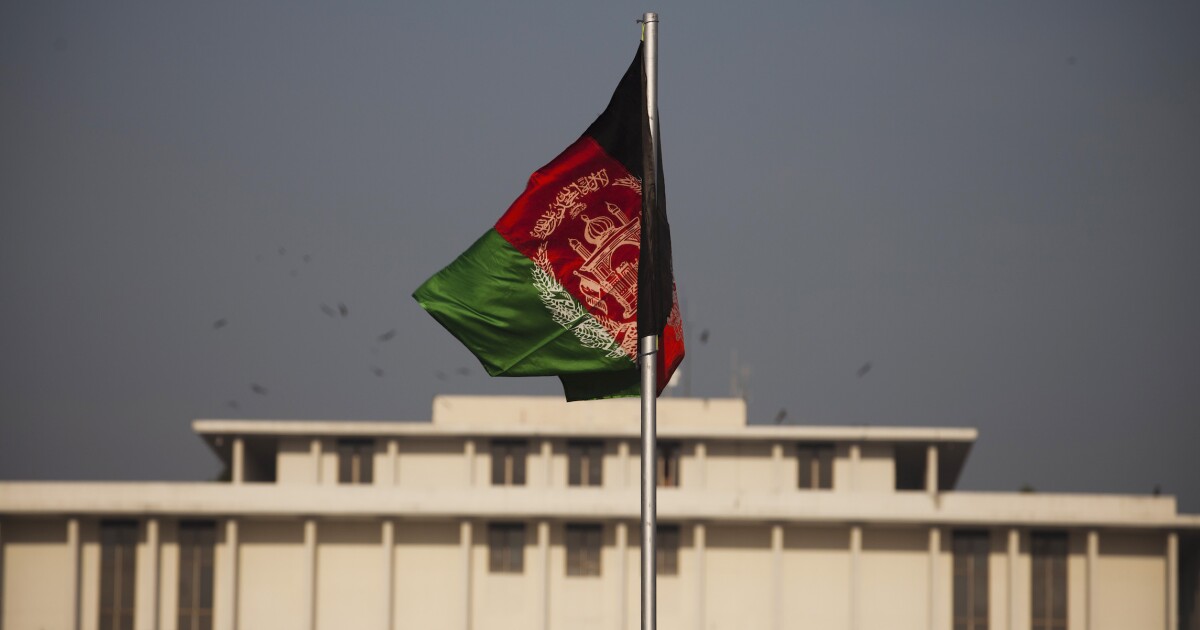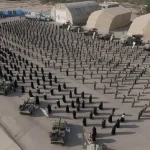

Afghanistan’s capital city of Kabul was plagued by violence Friday, with gunfire erupting at the Pakistani embassy in an Islamic State-led assassination attempt on Pakistan’s chief envoy and a suicide bomb attack near the office of a major Afghani political party.
A gunman staked at a building nearby the embassy opened fire as Ubaid-ur-Rehman Nizamani, Pakistan’s senior envoy, was leaving, seriously wounding one body guard. The Islamic State took credit for the attack on Saturday, saying two of its members armed with “medium and sniper weapons” targeted the ambassador and his security detail. Pakistani Prime Minister Shehbaz Sharif condemned the assassination attempt and praised the wounded body guard for saving lives in a tweet.
“I strongly condemn dastardly assassination attempt on Head of Mission, Kabul,” Sharif tweeted. “I demand immediate investigation & action against perpetrators of this heinous act.”
MEET THE NEW TALIBAN, OTHERWISE KNOWN AS THE OLD TALIBAN
That same day, two suicide bombers detonated their explosives outside the Kabul office of the Hezbi-Islami, a political party in the Taliban-run state, killing the attackers themselves and one other, while wounding several guards. One of the suicide bombers was wearing a woman’s burka at the time of the attack. Senior party leaders, the apparent targets of the blasts, were unharmed.
The U.S. State Department condemned the embassy shooting, but has not commented on the suicide bombing.
“We offer our sympathies and wish a quick recovery to those affected by the violence,” State Department spokesman Ned Price said at a Saturday news conference of the embassy attack. “The United States is deeply concerned by the attack on a foreign diplomat, and we call for a full and transparent investigation.”
The Taliban-run state and neighboring Pakistan have long had a complicated relationship, though tensions have certainly risen in the wake of the U.S. military withdrawal from Afghanistan in 2021. Afghanistan’s inability to sustain itself without foreign intervention or terrorist support was crystallized as a result of the U.S. withdrawal.
Just one day before the embassy attack, Pakistan demanded Afghanistan prevent terrorist attacks from being organized on their soil after the Pakistani Taliban, which is aligned with its Afghani counterpart, took credit for a suicide bombing earlier in the week. That attack in southwestern Pakistan sparked outrage nationwide.
CLICK HERE TO READ MORE FROM THE WASHINGTON EXAMINER
The Taliban vowed as the U.S. withdrew troops that they would not harbor terrorists. That pledge came at a time when organization leaders were attempting to build a functional government in Kabul and thus tried to appear more secular for financial purposes, and was quickly shown to be false with the U.S. airstrike that killed al Qaeda leader Ayman al Zawahiri from his safe house in a wealthy neighborhood of Kabul.
News of al Zawahiri’s presence in Kabul raised questions about the Taliban’s willingness to create an environment that would allow terrorist groups to rebuild their ranks. It would be highly unlikely for a fugitive of al Zawahiri’s rank to feel safe enough to show his face in Afghanistan’s largest city if he was there without the Taliban’s permission. Taliban officials denied accusations they were providing al Zawahiri safe harbor, something U.S. leaders dispute.







